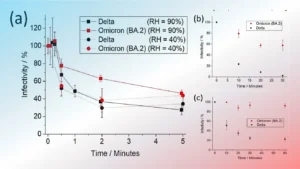What is the Genome India Project?
Taking inspiration from the Human Genome Project, the Department of Biotechnology (DBT) initiated the “Genome India Project” (GIP) on 3rd January 2020.
GIP is led by the Centre for Brain Research at the Indian Institute of Science, Bengaluru, and involves collaboration with 20 institutions.
Aim of Genome India Project
The GIP aims to collect 10,000 genetic samples from citizens across India, to build a reference genome.
This project is led by the Centre for Brain Research at Bengaluru-based Indian Institute of Science, which acts as the central coordinator between a collaboration of 20 leading institutions.
Method
For conducting the project, investigators in hospitals will lead the data collection through a simple blood test from participants and the information will be added to biobanks.
Some of the priority areas are Precision health, Rare genetic disorders, Mutation spectrum of genetic and complex diseases in the Indian population, Genetic Epidemiology of Multifactorial Lifestyle Diseases, and Translational Research.
Significance of Genome India Project
This initiative reflects India’s progress in gene therapies and precision medicine, and its movement towards emerging next-generation medicine which yields the possibilities for greater customization, safety, and earlier detection.
The initiative would help lay the foundation of personalized healthcare for a very large
group of persons on the planet.
Who started genome India project?
The Genome India Project funded and coordinated by the Department of Biotechnology (DBT). This project, announced that it had finished sequencing 10,000 Indian genomes.
What are the main objectives (aim) this project?
The GIP aims to collect 10,000 genetic samples from citizens across India, to build a reference genome.
What are the benefits of genome India project?
Creation of a Reference Genome and this project aims to collect 10,000 genetic samples from citizens across India, to build a reference genome. That helps in research for understanding the genetic diversity in India.
Also Read:
What is Recombinant DNA Technology ? Applications of rDNA Technology











